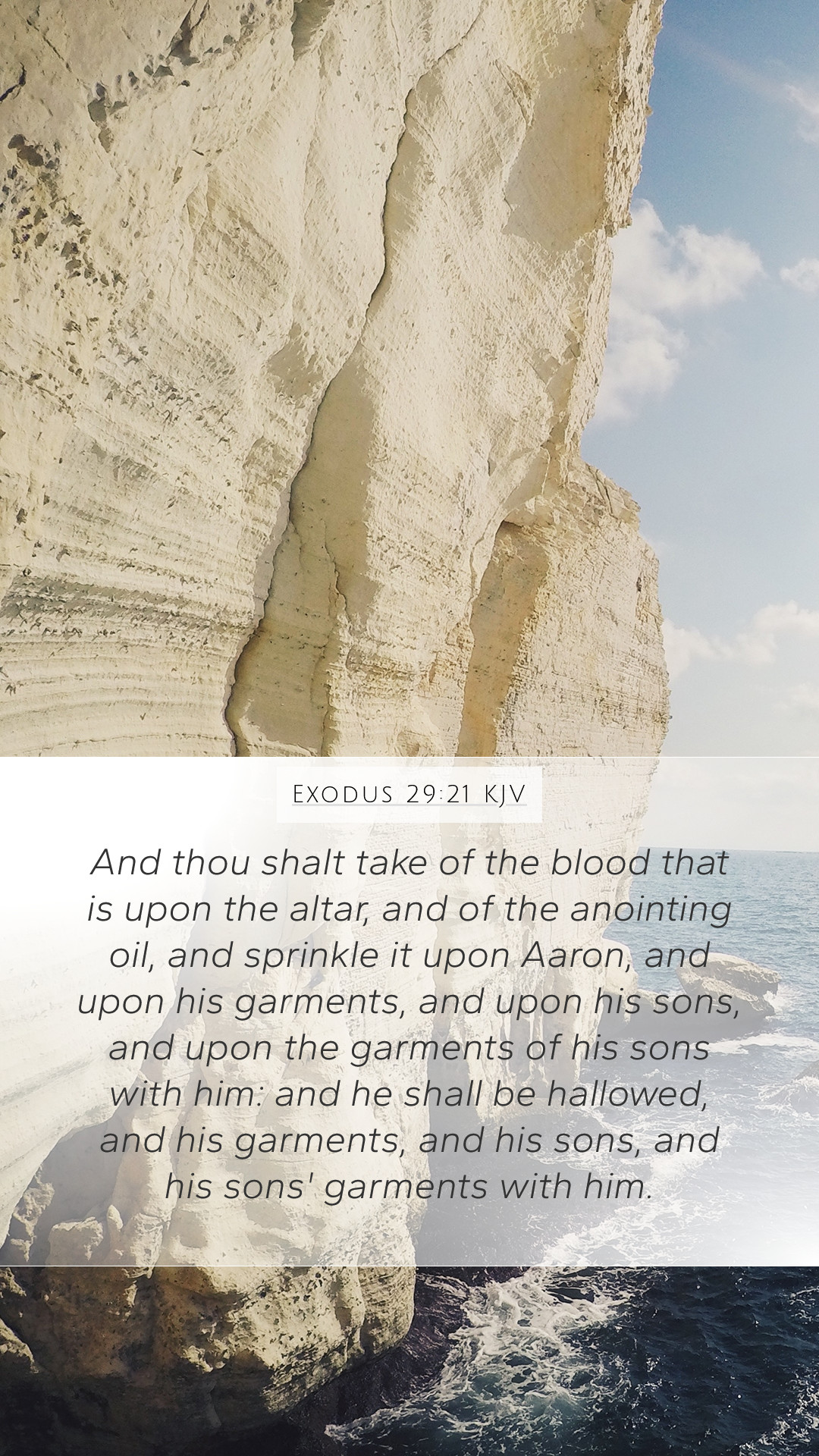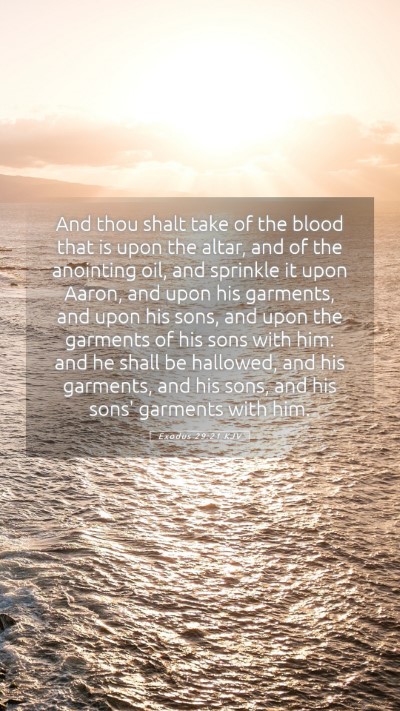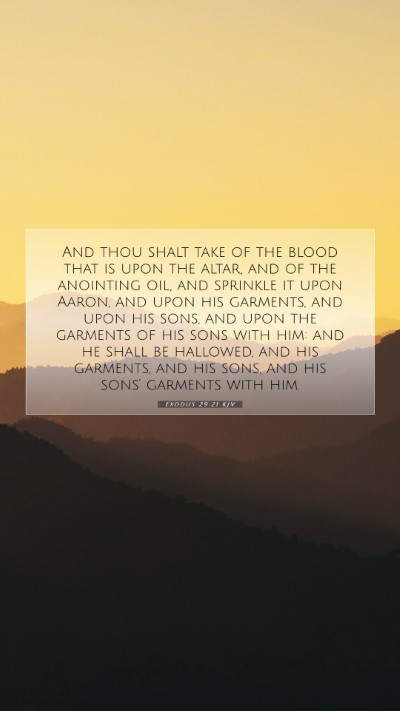Understanding Exodus 29:21: A Comprehensive Analysis
Exodus 29:21 states: "And you shall take some of the blood that is on the altar and some of the anointing oil,
and sprinkle it on Aaron and on his garments, and on his sons and on the garments of his sons with him.
He and his garments shall be consecrated, and his sons and his sons' garments with him."
Contextual Overview
This verse occurs within the broader context of the consecration of the priests in the Book of Exodus. It emphasizes the
ceremonial practices that signify the sanctification of Aaron and his sons for their roles in the priesthood.
Commentary Insights
-
Matthew Henry's Commentary:
Matthew Henry describes the significance of blood and anointing oil. He highlights that blood speaks of
atonement and the anointing oil symbolizes the Holy Spirit's empowerment. Together, they reflect the
dual aspect of sanctification – both physical (the garments) and spiritual (the individuals).
-
Albert Barnes' Notes:
Albert Barnes notes that the act of sprinkling blood indicates purification and consecration. He points out the
importance of being set apart for God’s service, signifying that Aaron and his successors must be pure in
order to serve rightly in the tabernacle.
-
Adam Clarke's Commentary:
Adam Clarke elaborates on the historical context of this ritual. He explains that the combination of blood and
oil not only sanctifies the individual priests but also the garments, illustrating the holiness required in
serving as mediators between God and the people.
Key Themes and Symbolism
- The Role of Blood:
Blood signifies life and atonement, foundational to biblical covenants establishing God's relationship with His people.
- Anointing Oil:
The oil represents the Holy Spirit, empowering the appointed leaders and setting them apart for divine service.
- Consecration:
Being set apart for God's purpose is central in this verse, illustrating the need for holiness and devotion in worship.
Applications and Implications
The practices depicted in Exodus 29:21 have profound implications for understanding Old Testament worship and priesthood.
This serves as a guide for modern believers regarding the importance of holiness and dedication in serving God.
Specific Applications:
- Personal Holiness:
Believers are called to live lives that reflect God's purity and holiness, echoing the themes of consecration found in this verse.
- Service to God:
Just as Aaron was consecrated for service, individuals in ministry today should approach their roles with a sense of sacred duty and humility.
- Understanding God's Covenant:
A deeper appreciation of how God requires a mediator and how this points to Christ as the ultimate High Priest can be drawn from understanding this context.
Cross References
- Leviticus 8:30: Further details the consecration process of the priests.
- Hebrews 9:22: Highlights the significance of blood in the context of spiritual cleansing and sacrifice.
- 1 Peter 2:9: Illustrates how believers are a royal priesthood, emphasizing their calling to be set apart.
Final Thoughts
Exodus 29:21 serves as a vital reminder of the themes of blood, anointing, and consecration in the journey of faith. As part
of your Bible study insights, consider how this verse's meanings can transform your understanding of priesthood and holiness
in your own life.


